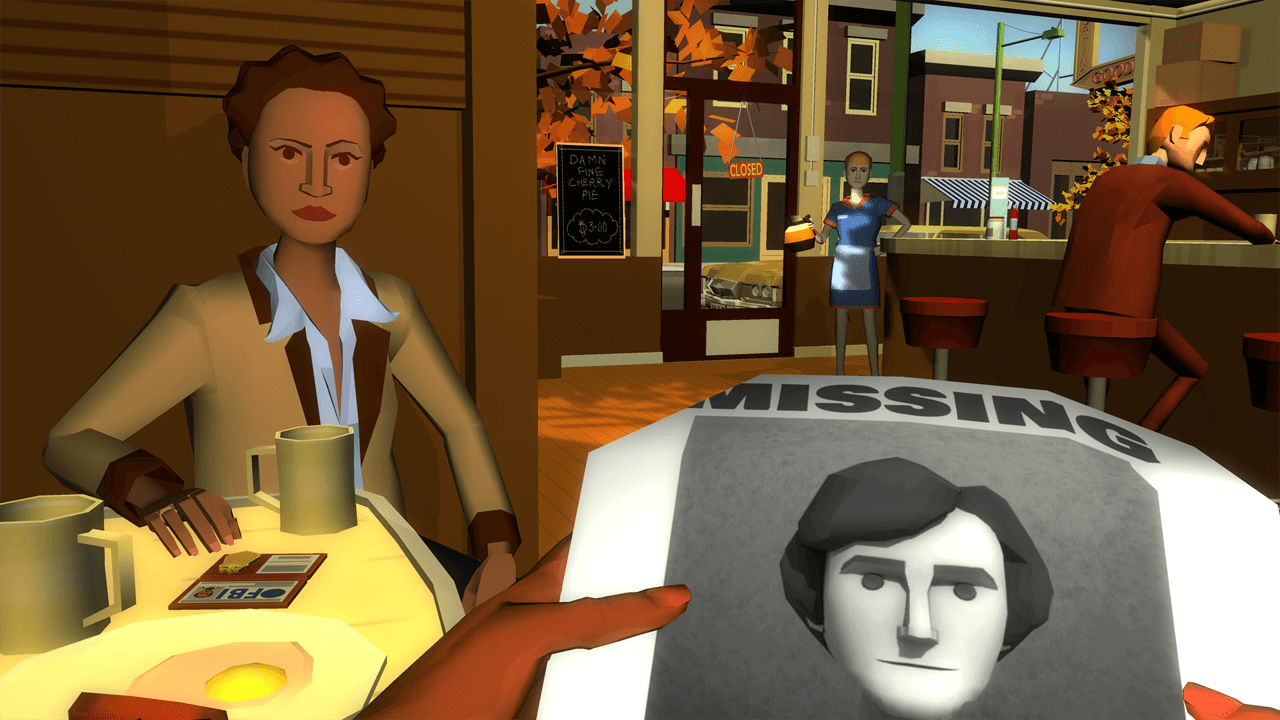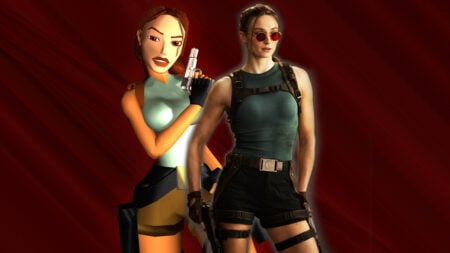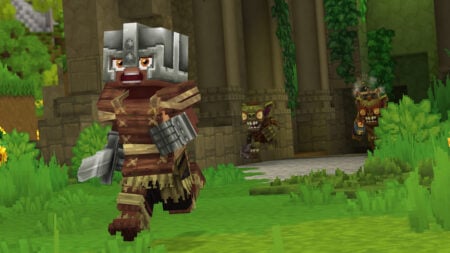Title: Virginia
Version Tested:
Available On: PlayStation 4,
Developer: Variable State
Publisher: 505 Games
Genre: Adventure Game
Official Site: Virginia
Release Date: 09-22-16
Where To Buy:
In creative mediums the longer an industry is thriving, the harder it is for the producers to create products that are unique enough to warrant purchasing. As a result, niche genres pop up rather frequently in the video game industry, with companies – AAA and Indie alike- hoping to cash in on its current relevancy.
First person interactive narratives have been rising in popularity ever since the release of Telltale’s the Walking Dead. Hardcore gamers criticize the genre heavily, stating that they tend to play closer to movies than actual games.
Virginia is a game that suffers from this heavily. While I am usually an avid fan of these story-driven titles, the game lacks what I crave most in this genre, a compelling story.
Set in its namesake of rural Kingdom, Virginia, the game puts the players in the shoes of newly graduated FBI Agent Anne Tarver. For her first case, Taver is paired with Maria Ortega, as the two are tasked with the case of investigating the mysterious disappearance of a young boy, Lucas Fairfax.

Instead of voice acting or dialogue, Variable State relies on body language and non-diegetic music to try and drive the story. The music by the Prague Philharmonic Orchestra is masterfully done and fits perfectly, but unfortunately isn’t enough to save the game from the convoluted story.
While clever and daring, the story of Tarver and Ortega didn’t resonate with me, as contextually vague scenes filled with missable text, actions or allegorical birds and buffalo really took away from the story. The pacing of the game is quick – far too quick for its own good at times – and features distinct editing, cut similarly to a movie. While interesting, the quick cuts were a bit too jarring, launching one scene to the next without warning. By consequence, some areas were only in the game for one scene and were then unexplorable, though exploration is rather limited in Virginia.
Exploration in interactive narratives has always been an issue. Many games in the genre are riddled with meaningless actions and objects to interact with, often forcing the player to do remedial tasks to progress the plot – like rooting around a trash yard for bottles. However, Virginia suffers from the inverse of those issues , as interactivity and control are reduced to one button and a fixed rail.

The game is understandably linear, but immersing players in the setting and story by giving them the reigns over the characters and the areas they are in, even if restricted to a point, is the driving force behind the stories in these adventures. While there are a few scenes in which I was able to roam a room or a grassy field freely, there was nothing to interact with outside of the set path of the narrative. The resulting experience feels only slightly more immersive than watching a movie, and falls into the cliche the genre is so widely criticized for as a walking simulator.
These problems all have a huge effect on the most important part of Virginia, its narrative. As a result of the poor pacing, scene timing discrepancies and flashback structures, it’s impossible to ever appreciate the setting of Kingdom. More importantly, the vague storytelling, allegories, and missable information took away from the character develop of Tarver and Ortega, the two people and the relationship the story revolves around. Sure it can be argued that the endearment can be found laced within the game’s backstory, but that would require multiple playthroughs, and without immersive or interesting gameplay to illicit it, I have no desire to play these game again.
Virginia’s attempt to deviate from the norm and stand out in an industry winded adventures, while an admirable attempt, left a sour taste in my mouth. Video games are a manner of escapism for many, but after 2 hrs in Virginia, I couldn’t wait to escape the boredom and be done with the game.
- Gameplay: Fixed paths, lack of interactivity and the use of only one button leave the gameplay feeling impersonal and cheap
- Graphics: Containing shades of lush landscapes and colorful corridors, the game shows the potential of it style, but ultimately falls flat whenever character models are the forefront
- Sound: The Prague Philharmonic Orchestra does a fantastic job of creating powerful, gripping pieces make an otherwise dull experience somewhat enjoyable
- Presentation: Filled with faulty pacing, oddly place flashbacks and trite allegories, the presentation tries far too hard to be its own special snowflake
[embedyt] https://www.youtube.com/watch?v=7kAYh4MJFc8[/embedyt]
[review]







